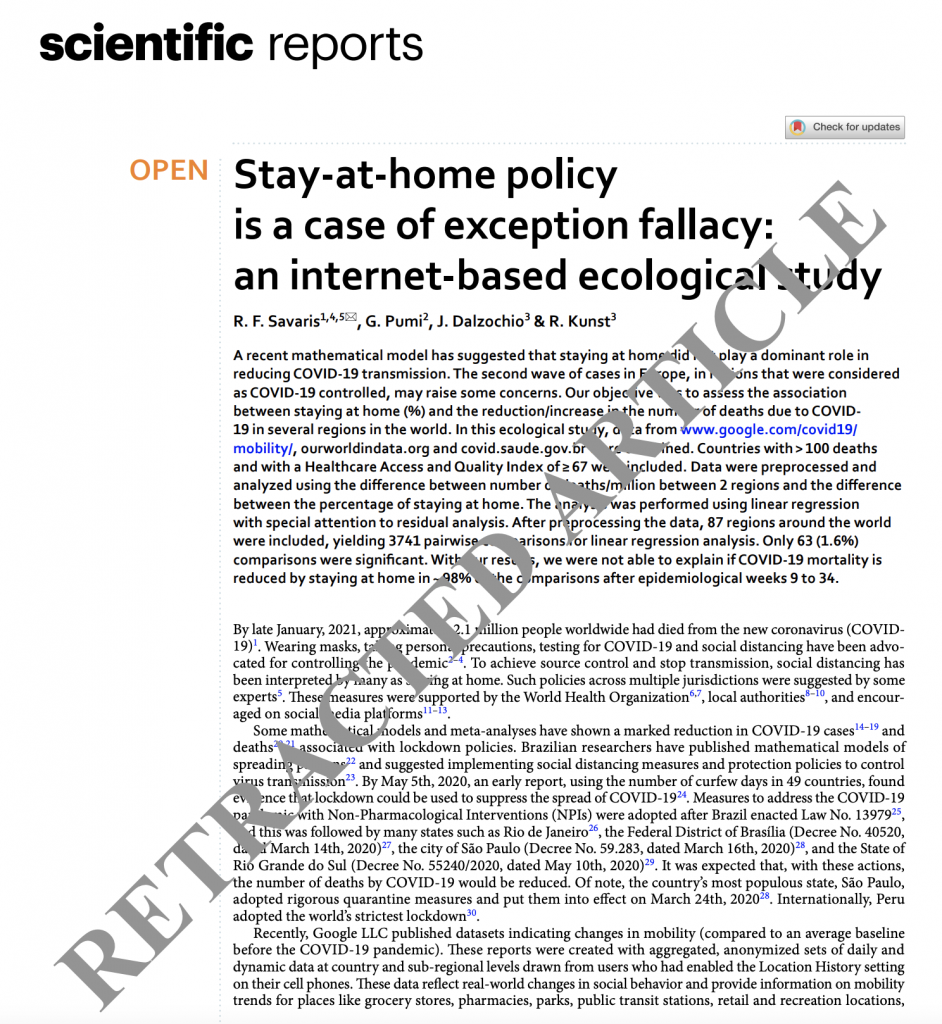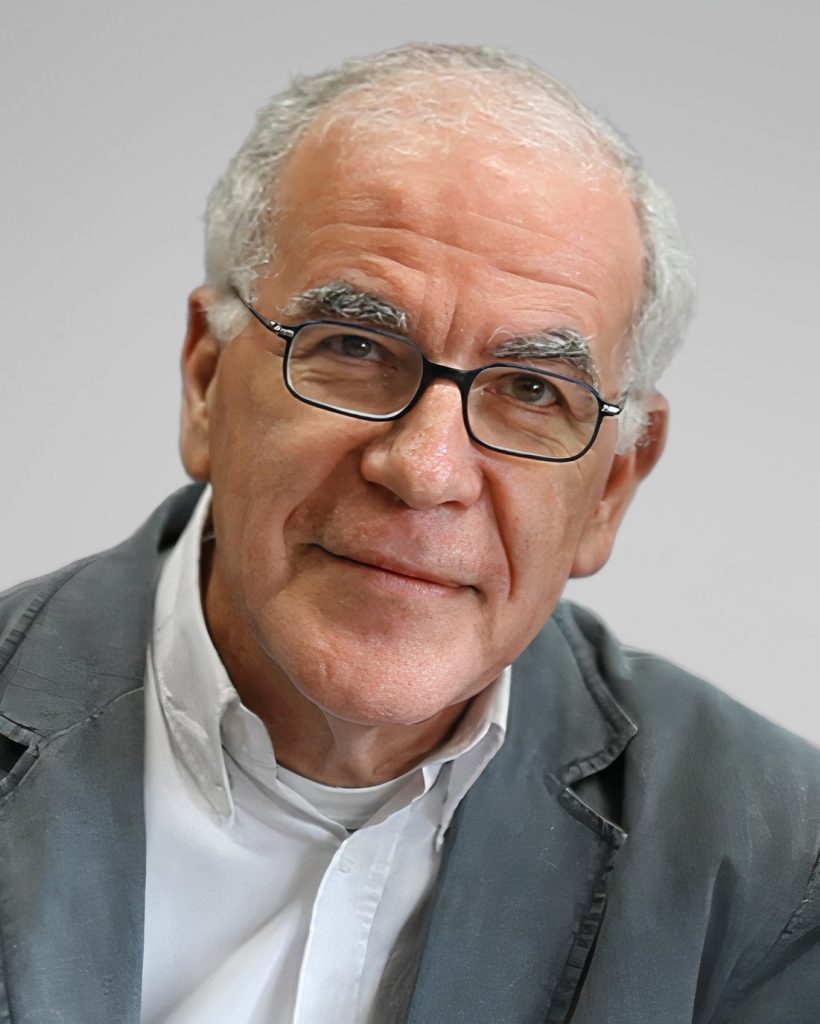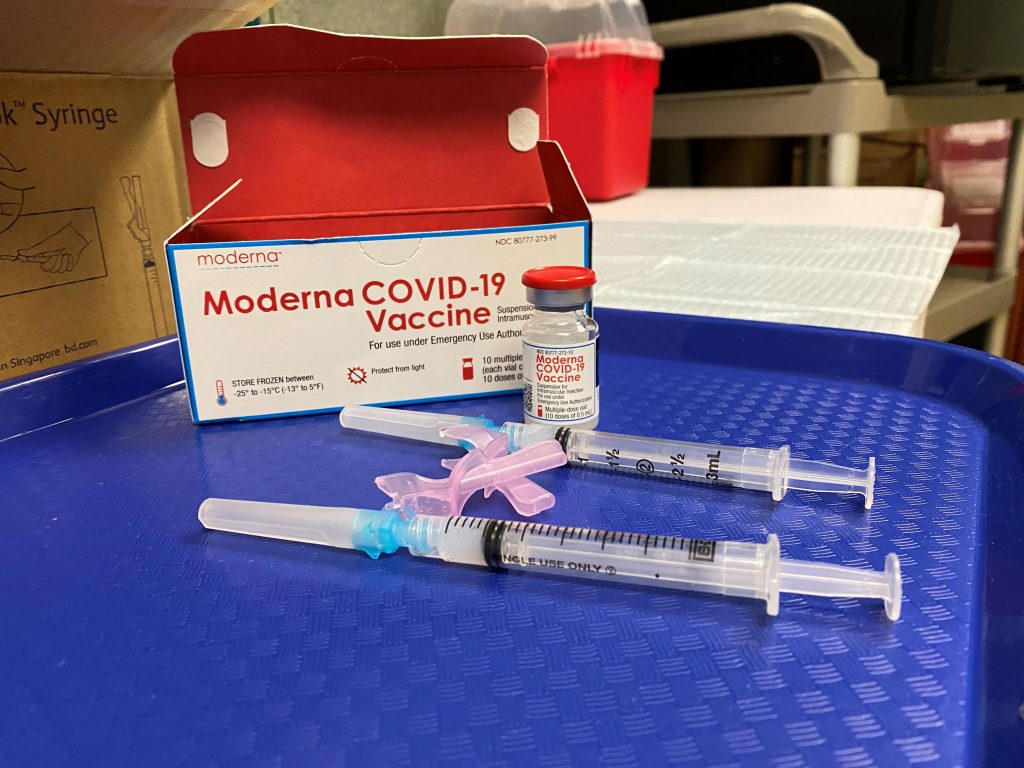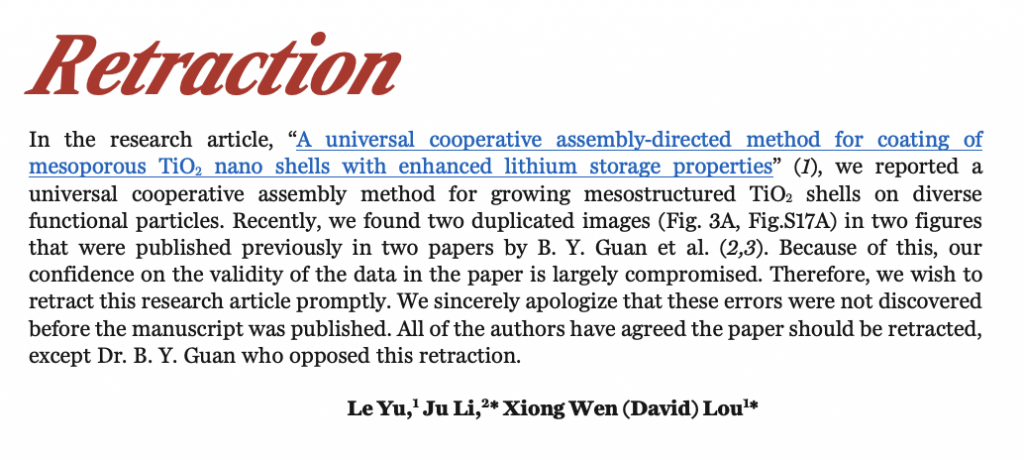
This is an evolving story, and we will update as we learn more.
A paper in Springer Nature’s Scientific Reports claiming there was essentially no evidence that lockdowns prevented COVID-19 deaths has been retracted.
As of late Monday US Eastern time, while the PDF of the paper was marked “RETRACTED ARTICLE,” a link to the retraction notice’s DOI that had appeared on the page — but did not resolve to anything — had disappeared. The notice appeared at approximately 7 a.m. US Eastern on Tuesday.
Here’s the retraction notice, provided to us by Springer Nature Tuesday morning before it went live:
Continue reading Paper claiming a lack of evidence COVID-19 lockdowns work is retracted







